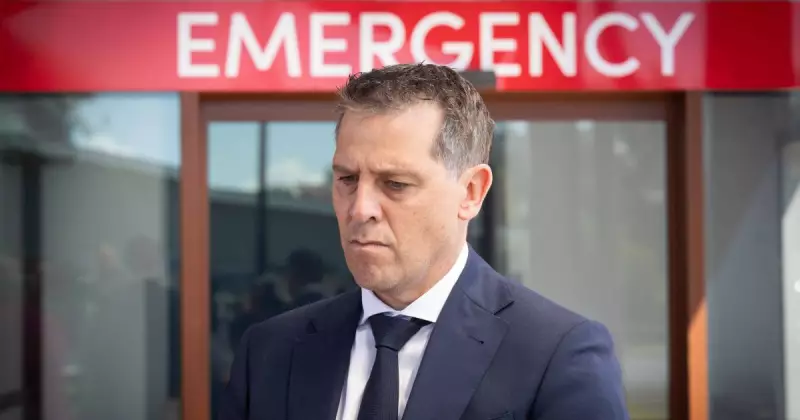
The New South Wales Health Minister is facing growing pressure after refusing to launch an investigation into a private company's management of a Newcastle cancer ward, where a report revealed deadly mould had been knowingly left untreated for at least half a year.
Health Minister Ryan Park has ignored urgent calls to investigate Honeywell, the building maintenance firm responsible for the Calvary Mater Hospital, following revelations the company sat on a critical report about dangerous Aspergillus mould in the cancer ward's air conditioning system.
Six Months of Silence on Critical Risk
The Newcastle Herald can reveal that Honeywell was first made aware of the life-threatening mould infestation in October 2024. The initial report explicitly classified the issue as "critical" and an "OHS risk to air quality in the cancer ward."
Despite the grave warning, which identified Aspergillus mould known to be particularly dangerous to immunocompromised patients, Honeywell took no action for six months. The company only acknowledged the problem internally after the report was leaked to hospital staff in May 2025.
As of this week, the hospital's air ducts remain contaminated with the hazardous mould, leaving cancer patients at ongoing risk.
Political Pressure Mounts for Accountability
Wallsend MP Sonia Hornery has demanded answers, stating that Honeywell must be "held to account" for its failure to act. "For Honeywell to sit on the problem for six months and do nothing was simply not good enough," Ms Hornery said.
"This situation should not be occurring. Honeywell need to be held to account for proper maintenance to our region's main Oncology hospital," she added, confirming she would seek an immediate briefing from the Health Minister.
Prominent whistleblower and Mater cancer patient Troy Stolz, who originally called for Minister Park's intervention, said he has been contacted by numerous families concerned about the mould's impact on their loved ones.
"They're not taking the issue seriously enough in my view and the community deserves better," Mr Stolz stated. "No one seems to be held accountable in these public-private partnerships. The buck has got to stop with the government."
Public-Private Partnership Under Scrutiny
The Calvary Mater Hospital operates under a public-private partnership (PPP) managed by NovaCare consortium, comprising Westpac Banking, Abigroup, Medirest and Honeywell. The arrangement has another eight years to run, with the NSW government expected to pay NovaCare approximately $60 million during this period.
This incident has reignited debate about the effectiveness of PPPs in healthcare delivery. The Calvary Mater and Orange Hospital are among the last remaining hospital PPPs in NSW, following the government's recent $190 million buyback of Northern Beaches Hospital.
The quality of services provided under PPPs came under intense scrutiny after the tragic 2024 death of two-year-old Joe Massa at Northern Beaches Hospital, where he waited three hours in emergency before suffering cardiac arrest.
In response to that incident, the Minns Labor government introduced legislation in March to ban all future PPPs for acute hospitals - though existing partnerships like the Mater's remain in place until November 2033.
Both Honeywell and NovaCare have repeatedly refused to answer questions from the Newcastle Herald about the mould contamination. A Honeywell spokesperson stated: "We are not in a position to comment on this matter. We recommend that you direct any questions to the state."
The NSW government and Hunter New England Health, which provides clinical services at the Mater, have maintained that maintenance remains NovaCare's responsibility. A spokesperson for Minister Park said the district was "engaging in further testing to ensure mitigation controls that have been deployed remain effective."





